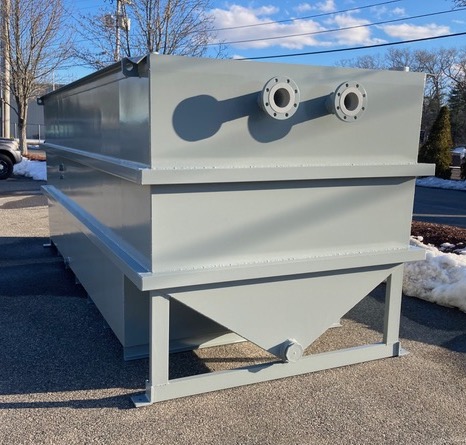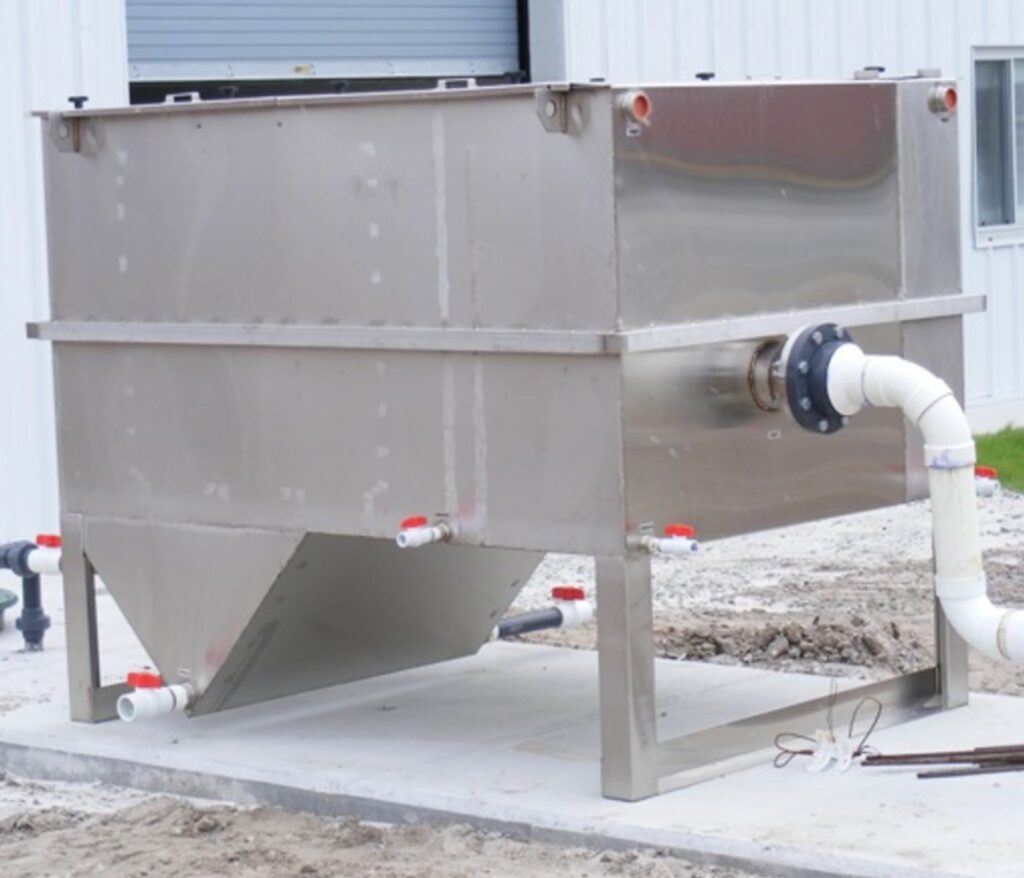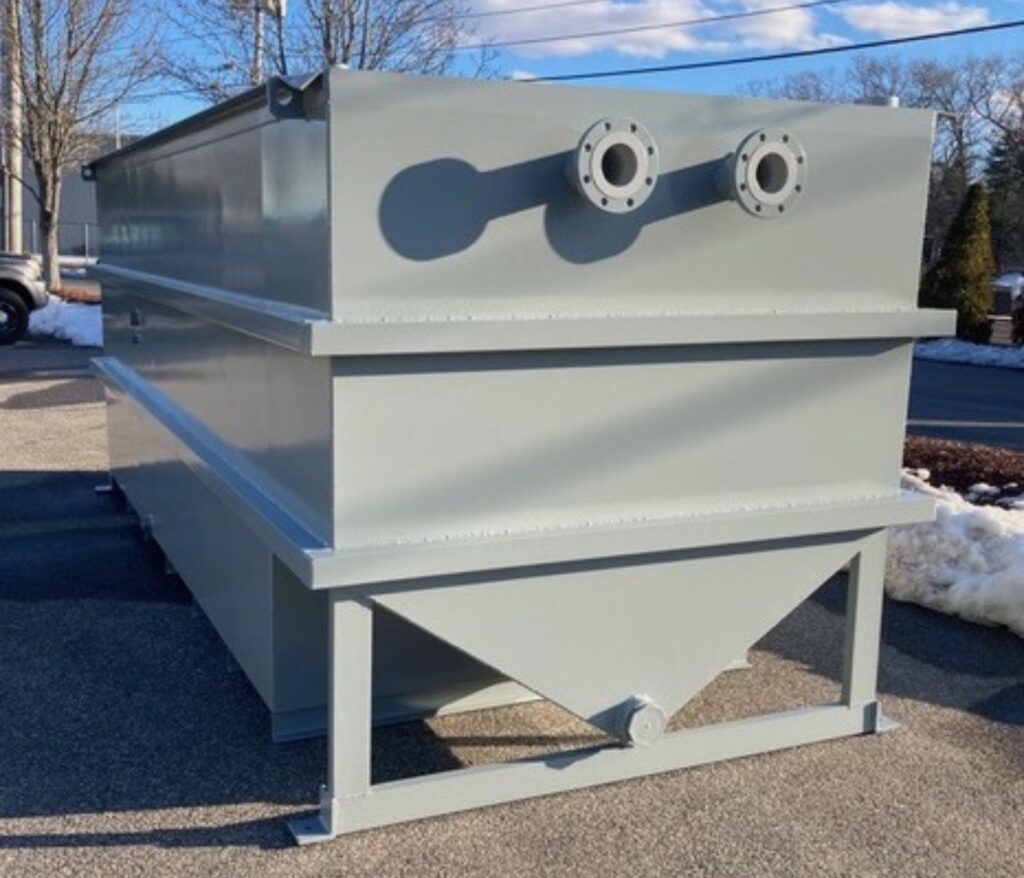Introduction to OIL WATER SEPARATOR - PUREWATER EXPERT
Purewater Expert offers a comprehensive range of clarifier systems, including High Rate Solid Contact Clarifier (HRSCC), Tube Settler (TSU), Clariflocculator, and Lamella Settler. These systems are designed for efficient and continuous removal of settleable solids from water and wastewater, meeting diverse client requirements. Our systems are tailored to various specifications, ensuring seamless adaptability to specific applications.

The Oil Water Separator by Purewater Expert is designed to effectively remove free oil from wastewater, achieving oil concentrations below 5 ppm.
Product Description
The Oil Water Separator by Purewater Expert is designed to effectively remove free oil from wastewater, achieving oil concentrations below 5 ppm. By utilizing a combination of advanced technologies, including API/TPI, oil skimmers, and coalescing columns, our solution ensures compliance with PESO norms and supports a comprehensive recycling system. When landfill waste decomposes and rainwater leaches out the resulting products, it creates leachate. Our oil-water separator efficiently addresses this issue, providing a reliable treatment solution for various industries dealing with oil-contaminated water.
Treatment Process
- Pretreatment
The pretreatment phase focuses on removing the majority of oil from the wastewater using systems like API (Atmospheric Plate Interceptor), CPI (Corrugated Plate Interceptor), or TPI (Tilted Plate Interceptor), effectively separating the oil-water mixture before further treatment. - Secondary Treatment
The secondary treatment leverages advanced membrane technology to remove organic matter, oil, and suspended solids, ensuring the water meets environmental discharge standards and regulations.
Functionality
Following the initial oil separation, the water undergoes further treatment in advanced systems like Dissolved Gas Floatation (DGF) or Induced Gas Floatation (IGF). The treatment is complemented by the use of Flash Mixers, Flocculators, and specialized Nutshell Filters, which are particularly effective in removing oil from polluted water.
Feature
- High-Efficiency Oil Removal: The system’s multi-stage filtration and separation process ensures high oil removal efficiency, meeting stringent environmental standards.
- Customized Treatment Solutions: Tailored to meet the specific needs of industries, our separators are designed for diverse applications.
- Compact and Durable: Designed to optimize space and longevity, our oil-water separators are built for durability in harsh environments.
Advantages
- Enhanced Oil Removal: Effectively reduces oil content in water, ensuring compliance with environmental standards.
- Improved Wastewater Treatment: A comprehensive treatment system that ensures treated water meets discharge criteria.
- Environmental Compliance: Designed to help businesses comply with local and international environmental regulations.
- Low Maintenance: The system is built with durable components that require minimal maintenance, reducing downtime and operational costs.
PLANTS WE OFFER


Frequently Asked Question
An oil-water separator is a device used to separate oil and water mixtures in industrial wastewater. It uses a combination of physical processes such as gravity separation, coalescing, and adsorption to isolate the oil from the water, which can then be safely disposed of or reused.
The system utilizes API/TPI for initial oil removal, followed by secondary treatment through DGF or IGF, ensuring efficient separation of oil and suspended solids. The process also incorporates advanced filtration methods like Flash Mixers and Flocculators for optimal performance.
Industries such as manufacturing, automotive, chemical processing, food processing, and oil & gas can all benefit from an oil-water separator, especially those dealing with oil-contaminated wastewater that needs to be treated before disposal
Oil water separators help businesses comply with environmental standards by reducing the amount of oil and other contaminants in wastewater. They prevent pollution, support sustainability, and reduce the risk of fines for non-compliance
Regular maintenance includes monitoring system performance, cleaning filters, inspecting components, and ensuring the system operates efficiently. Periodic servicing ensures the separator remains effective and reliable over time.
